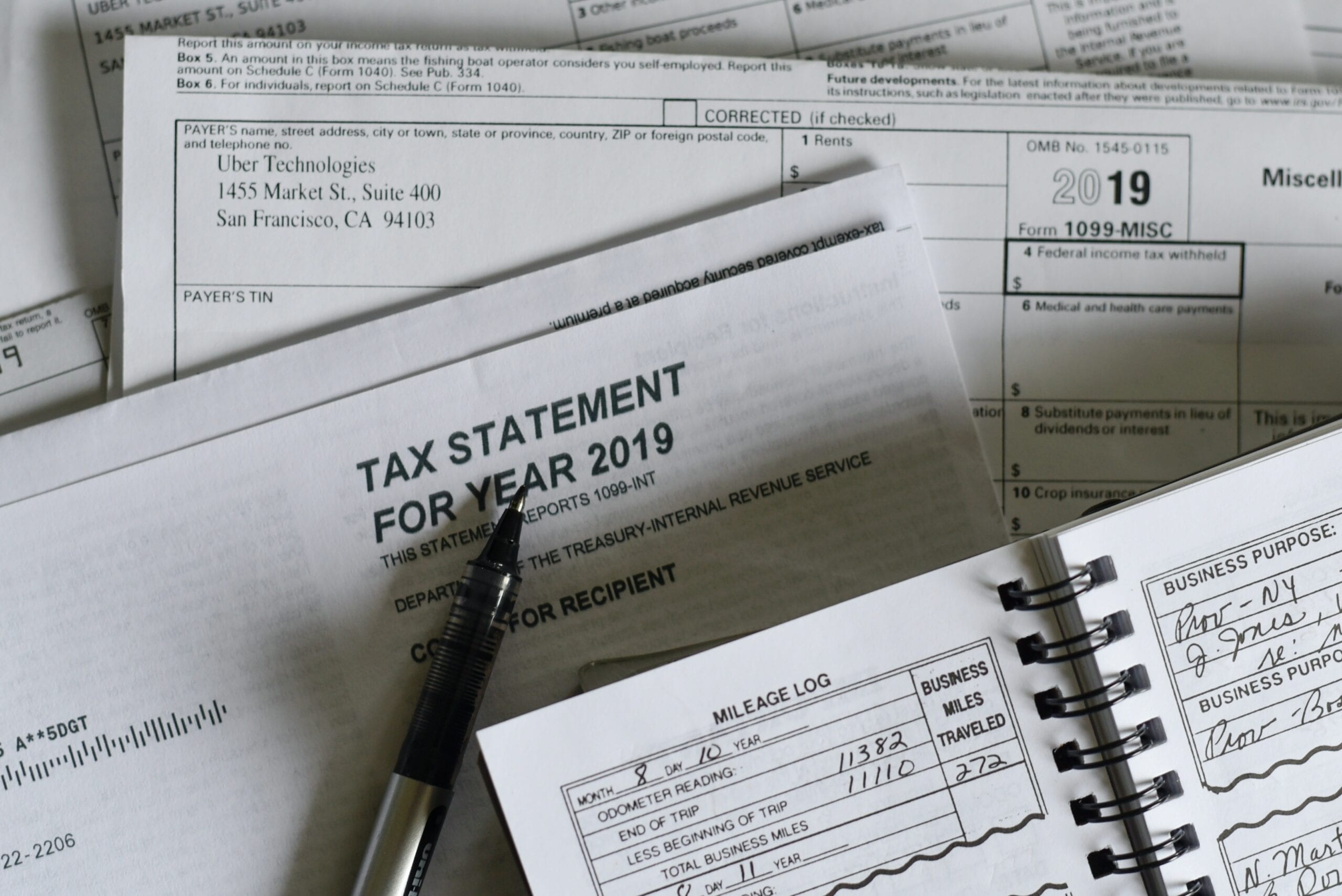The Biggest Tax Break Every Entrepreneur Should Know
Updated on June 10th, 2019 | By Anthony Glomski  | Leave a Comment
| Leave a Comment

You may have heard the recent chatter about opportunity zones or opportunity zone funds. Newly proposed regulations have created a significant tax break—and the buzz is for good reason.
According to Mike Haun, a leading expert in this area and partner in the Tax practice of Paul Hastings based in the firm’s Los Angeles office, “The passage of this act has unlocked different ways to take advantage of substantial tax savings by investing in opportunity zone funds as well as operating businesses located in qualified opportunity zones. We are actively forming funds and evaluating the various benefits for our clients.”
There are California Opportunity Zones, Florida Opportunity Zones, and, well… 8,700 different opportunity zones in all 50 states and U.S. Territories. I’ll explain how they work in this article.
Key Takeaways:
- There’s a massive opportunity to save and defer taxes on the sale of an appreciated asset.
- You have the potential to start a business and ultimately sell it completely tax free.
- There are pros and cons—know them and decide what’s right for you.

Do you have assets that have appreciated such as stocks, artwork, your primary residence, or maybe a business? Are you a taxpayer—i.e., an individual, C corporation, Partnership, S corporation, or a trust? Are you interested in making a long-term investment or starting a business?

Do you have assets that have appreciated such as stocks, artwork, your primary residence, or maybe a business? Are you a taxpayer—i.e., an individual, C corporation, Partnership, S corporation, or a trust? Are you interested in making a long-term investment or starting a business?
How Much Can I Save in Taxes?
A lot. The tax savings can be massive. On the front end alone, you receive two benefits:
1. Deferral of your capital gains tax until 2026
2. 15% reduction in your capital gains tax bill (if investment is made by year-end 2019)
It gets even more interesting on the back end. You will be acquiring an asset—which you hope increases in value. If you hold that investment for 10 or more years, the tax on the sale of that asset is $0.
Imagine investing in an apartment complex, holding for 15 years, and then incurring no taxes after you sell the building. Or imagine starting an operating business using gains on stocks, artwork, or some other asset as the seed to start a new business. If you sell the new company after 10 years, your tax bill is $0. Please note, it is still not clear whether states like California and others will follow the U.S. Federal guidelines, but the hope and expectation is that they will. Stay tuned as new guidance should be coming out.
What Do I Need to Know?
Opportunity zone investments are nuanced with pros and cons—there’s no free lunch. First and foremost, while they can be a great vehicle for lowering your tax bill, you want to be sure they’re right for you and your unique situation. Do you want to defer and save taxes, commit to a long-term investment (10+ years) and give up some control (by way of entering a fund or other structure)? If you answered “yes” to the questions above, then this strategy may make a lot of sense for you and create a huge tax savings. If you answered “no” to any of these questions, or if you have some hesitation, then the cons may outweigh the pros.
There are two primary investment choices:
1. Real estate assets located within a designated zone. Examples include a multifamily apartment complex in a designated zone that will require substantial rehab, a ground-up commercial development, or a hotel redevelopment.
2. Operating businesses located within a designated zone. If you’re contemplating starting a business within a qualified opportunity zone, it’s going to require some heavy lifting by attorneys, CPAs, and other professionals. In either case, there are tests that must be met beyond simply being located within a designated zone.
Scott Turner, Executive Director of the White House Opportunity and Revitalization Council, has made it very clear that the Trump Administration is hoping that the program will be used to start and expand operating businesses within the opportunity zone census tracts since this will create local, sustainable jobs and improve lives for local residents.
According to Trevor Daley, President of Cerrell Associates, “We are seeing continued interest from our clients, including many developers and business owners to take advantage of this major tax savings. We believe this has potential to create a major catalyst for developers and entrepreneurs looking to start new businesses. It is a win-win for our clients and the community.”
Access the Top 10 Wealth Planning Strategies for Successful Entrepreneurs

Access the Top 10 Wealth Planning Strategies for Successful Entrepreneurs
Why Did This Tax Break Happen?
Congress created the Qualified Opportunity Zones Program as part of the landmark 2017 Tax Cuts and Jobs Act (TCJA). The rationale was to encourage long-term private sector investments in low-income urban and rural communities nationwide. The program is gaining traction because it enables investors who are facing capital gains taxes from the sale of their business, artwork, appreciated stock, primary residence, crypto-currency, a venture capital or private equity fund having an exit or other assets to receive generous tax breaks in exchange for investing their gains in qualified opportunity zone funds (QO Funds). The QO Funds make equity investments in businesses and real estate within the many qualified opportunity zones designated by each state. Even better, investors can shift their gains to any fund they wish—they’re not limited to funds within their hometown or their home state. They simply have to reinvest their gain amount within 180 days from the date of disposition of the assets they sold.
Of course, if you’ve just experienced a financial windfall, you’re probably not thinking, “Hey, I need to get into a QO Fund.” But, likely you are looking for ways to minimize your tax hit from that windfall.
Real Life Example
Let’s say Tina’s company had an initial public offering (IPO), she sold her shares of stock for $1.1 million, and her basis in the stock was $100,000. Normally she’d be on the hook for taxes on $1 million capital gain ($1.1 million minus $100,000). However, if Tina invested that $1 million gain in a QO Fund within 180 days of triggering that gain, she could defer taxes on the profits for several years.
Tina gets three key benefits for rolling her $1 million gain into the QO Fund:
1. No capital gains taxes are due on that money until 2026.
2. By 2026, her capital gains taxes are reduced by 15%.
3. If the fund she invests in holds the building or other asset for at least 10 years, then Tina owes $0 in capital gains tax once that asset is sold, and the depreciation deductions she claimed during the holding period also escape tax.
“What I like about this program is that it allows people to put the government’s tax dollars to work by directly helping other entrepreneurs and job creators.”
CLICK TO TWEET
Where Are These Qualified Opportunity Zones Located and How Can I Put Money to Work?
Interestingly, qualified opportunity zones are not found exclusively in low-income areas. Booming places like New York City’s Hell’s Kitchen and the Los Angeles Arts District are also considered qualified opportunity zones. It all depends on how each individual state wanted to divvy up the “opportunities” for resources and development.
There are myriad ways a QO Fund can make qualified investments. The fund could purchase real estate and do heavy rehab on it, or it could purchase a parcel of land and build a commercial building. The fund could also start a bakery, dry cleaner, or any other local business that’s needed in a community. The key is that there are two primary ways to go about investing in a QO Fund:
1. Invest in an established QO Fund. This is the most common way. Before you pull the trigger, your advisors should do LOTS of due diligence on the fund. CPAs, attorneys, and other professionals should evaluate the feasibility of investing in such a fund and perform ongoing review of the fund. Your advisors should look at the general partners who are running it as well as which law firm set up the fund and who is doing the fund’s audit. The fund should be set up by a law firm that has experience in this area. It should also have a large and recognizable accounting firm named as its auditor. Over 150 QO Funds have reportedly been launched since TCJA was passed at the end of 2017. Selecting the right funds AND determining what makes sense for your unique situation is best done with a skilled advisor or coordinator. Reach us at info@agassetadvisory.com, and we’ll point you in the right direction.
2. Form your own fund. If it’s a large enough transaction and dollar amount, you (the investor) can form your own fund. That’s going to involve top-tier law firms and accounting firms along with other specialists and an advisor that can help coordinate on your behalf.
Blake Christian is a Tax Partner with HCVT and has assisted with the formation of over a dozen QO Funds so far. “The majority of our projects involve private/family office QO Funds. This is a great option for investors with gain rollovers in excess of $500,000 – assuming the investor group has skills or connections with serial entrepreneurs or real estate development. This can avoid annual fees and “carried interest” charges found in public QO Funds. Taxpayers that do not have these skills or connections, or have smaller gain amounts, should definitely explore some of the interesting public QO Funds.”
What You Need to Know If Starting an Operating Business
In order to qualify for the tax break, a new business needs to be located in an opportunity zone. Additionally, at least 50% of its gross income needs to come from an active trade or business conducted within the opportunity zone. This is straightforward if you operate a café selling coffee, but what if your startup is in an opportunity zone and you sell products on the internet? Are you disqualified?
Good news—proposed regulations were released that give you other ways to pass the test. Now, businesses within a qualified opportunity zone will need to meet only one of these safe harbors to be eligible:
1. At least 50% of the services performed—based on hours—for the business by its employees and independent contractors (and employees of independent contractors) are performed within the qualified opportunity zone.
2. At least 50% of the services performed—based on amounts paid for services—for the business by its employees and independent contractors (and employees of independent contractors) are performed in the qualified opportunity zone.
3. Both (a) the tangible property of the business that is in a qualified opportunity zone and (b) the management or operational functions performed for the business in the qualified opportunity zone are necessary to generate 50% of the gross income of the trade or business.
Take Action
I realize this is a lot of information to digest. But hopefully you get the gist and have a better understanding of the investment and tax mitigation opportunities at hand. I recently had the privilege of sitting on a panel with some of the foremost experts in the space including a representative from the Milken Institute. One of the main conclusions from that panel discussion was that operating businesses are going to be the big winners here if we continue to get more clarity. The good news is that, so far, the proposed regulations are pointing us in the right direction. This tax incentive program will create huge opportunities for many entrepreneurs, business owners, and those facing a large capital gains tax.
If you want to see if this works for you or be sure you aren’t missing an opportunity, get in touch at info@agassetadvisory.com.
0 Comments
Submit a Comment
Meet Anthony
Anthony Glomski is the founder of AG Asset Advisory, an internationally recognized SEC-registered Family Office. His team works extensively with entrepreneurs so they don’t miss out on any potential opportunities and they get the results they want. This collaborative process addresses an array of family, financial, and lifestyle concerns along with coordination and oversight of various professionals to keep everyone focused tightly on their goals.
0 Comments
Submit a Comment

Work With Us
Contact:
Our Mission:
We design bespoke wealth planning strategies and customized solutions for highly successful entrepreneurs that avoid missing potential opportunities and achieve the outcomes you want.





Meet Anthony
Anthony Glomski is the founder of AG Asset Advisory, an SEC-registered Family Office. His team works extensively with successful entrepreneurs so they don’t miss out on any potential opportunities and get the results they want. This collaborative process addresses an array of family, financial, and lifestyle concerns along with coordination and oversight of various professionals to keep everyone focused tightly on their goals.